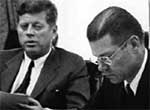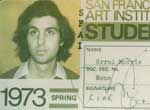By Nancy Ramsy
The New York Times - December, 27, 2004
In the months preceding the November election, it seemed as if every other week saw the release of a new documentary whose primary intent was to defeat George W. Bush.
Theaters ran ''Fahrenheit 9/11,'' ''Bush's Brain,'' ''Going Upriver: The Long War of John Kerry'' and ''Brothers in Arms: The Story of the Crew of Patrol Craft Fast 94.'' House parties sponsored by the liberal group MoveOn featured ''Outfoxed: Rupert Murdoch's War on Journalism'' and ''Uncovered: The War in Iraq.'' A Web site started in September, www.filmstoseebeforeyouvote.org, had 13,000 visitors in its first three weeks.
Now, with the election over -- one whose results George Butler, the director of ''Going Upriver,'' likened to ''coming to a screeching halt in front of a brick wall'' -- the question arises of what the future holds for these filmmakers. Interviewed about plans for their next projects, many made clear that they did not view the recent mixing of filmmaking with activism as a phenomenon limited to a presidential campaign.
''Political documentaries are not going to come to an abrupt halt because of the re-election of George Bush,'' said Errol Morris, whose prescient Academy Award-winning documentary, ''The Fog of War: Eleven Lessons From the Life of Robert S. McNamara,'' looks back on the fateful decisions that led the United States into the Vietnam War and kept it there. During the campaign, Mr. Morris filmed political commercials with MoveOn featuring people who had voted for Mr. Bush in 2000 but planned to vote for Senator John Kerry in 2004.
''If people were motivated to make films because of their concern with the policies of the first administration,'' he said, ''it's hard to argue that those concerns were allayed on Nov. 2.''
Joseph Mealey, whose ''Bush's Brain'' was his first foray into producing a documentary after 25 years of working as a cameraman, said, ''George Bush will continue to give us plenty of material.''
Robert Greenwald, who directed ''Outfoxed'' and ''Uncovered,'' said he had been encouraged by thousands of e-mail messages he had received supporting his films -- journalism schools have requested copies of ''Outfoxed,'' for example -- and he has several projects in the pipeline. He is working on a documentary about prisoners' rights at Guantanamo Bay, Cuba.
Michael Moore reportedly is planning a follow-up to ''Fahrenheit 9/11'' that will document the second Bush administration. Asked about that movie in a telephone interview on Friday, Mr. Moore said he had to go, but before he hung up he talked about a documentary he is currently making about the health care and pharmaceutical industries and health maintenance organizations. He said that it was tentatively titled ''Sicko'' and that ''it'll be out in a year and a half.''
''Sicko'' has already raised some concern at drug companies. An online newspaper at Pfizer's research and development site carried what Stephen Lederer, a spokesman for global research and development at Pfizer, described as ''a semi-humorous piece'' that warned employees, ''If you see a scruffy guy with a baseball cap, then you know who it is.''
For the moment, Mr. Moore continues to be involved in ''Fahrenheit 9/11.'' In an earlier conversation, he said he was ''still in the thick of making sure as many people see this film as possible.'' Describing the movie as ''about the Iraq war and the war on terrorism and the use of fear to manipulate the public,'' he added, ''I started it before there was Bush versus Kerry.''
Other films that seemed to be specifically about the November election are also finding resonance now. The Sundance Channel will rebroadcast ''With God on Our Side: George W. Bush and the Rise of the Religious Right in America'' on Presidents' Day, Feb. 21. The film was commissioned by Channel 4 in Britain, and before Sundance picked it up for broadcast in this country, said David Van Taylor, a director of the film, ''we were dancing with another broadcaster, who said, 'If Kerry wins, this film will not have any shelf life.''' Not to worry. ''Since the election, I've gotten calls from CNN, National Public Radio, Air America, DVD distributors, schools and librarians,'' he said.
A similar phenomenon happened with ''Rated R: Republicans in Hollywood,'' which ran on AMC in September and is now being rebroadcast. ''Rated R,'' said Jesse Moss, its director, is ''a glimpse into a conservative movement we don't see, outside the evangelical component.
''There'd always been an underground railroad of conservatives in Hollywood, but with the Schwarzenegger campaign they had a cause and were brought together.''
Although a distinct minority in this world, some filmmakers made conservative documentaries during the last campaign, like ''Celsius 41.11: The Temperature at Which the Brain Begins to Die,'' written and produced by Lionel Chetwynd and Ted Steinberg and released in October as a counterpoint to ''Fahrenheit 9/11.'' More typical of politically active filmmakers is Mr. Moss, who said his politics fit neatly into the ''documentary community, which is very progressive.'' Ten years ago he worked as a Democratic speechwriter, and he is now considering a film about the fall 2001 anthrax attacks. ''I don't know anybody who voted for George W. Bush,'' Mr. Moss said. ''I think that for documentarians, we have a blind spot.''
Mr. Morris said: ''Behind the liberal agenda -- behind every agenda, actually -- is the idea, 'I'm right and you're wrong.' My fear was that much of the material emerging from the left or from the Democrats was preaching to the choir. I sometimes look at 'Fahrenheit 9/11' as creating a kind of secular church. You could go to the movie theater and collectively worship against the Bush infidel.''
Perhaps. But issues raised in President Bush's first term will continue to provide fodder for filmmakers in the next few years.
Mr. Mealey said that when he first took an option on ''Bush's Brain,'' the book by James Moore and Wayne Slater, he was angered by what he perceived as ''the lack of critical analysis of Bush policies, and particularly of the war in Iraq, by mainstream TV news organizations.'' He then persuaded the director Michael Shoob, who had worked on Democratic campaigns in the late 1960's and early 70's before starting a career in Hollywood, to collaborate with him, and now the two have a new project. ''It's called 'The Warriors,' and it has to do with the Iraq war,'' Mr. Shoob said.
Filmmakers like Mr. Moore, Mr. Butler, Mr. Greenwald, Mr. Mealey and Mr. Shoob ''felt their films were driven by a political message that wasn't being heard,'' said Paola Freccero, who programs films for the Sundance Channel. ''That message was 'We've got some serious problems with our current administration, and please vote them out.'''
Todd Gitlin, a professor of journalism and sociology at Columbia University, whose most recent book is ''Letters to a Young Activist,'' suggested that politically minded filmmakers produce ''quick and dirty docs'' that are ''very issue-specific, such as one on our choices in Iran.'' He also suggested that those ''who feel trapped inside the blue-state ghetto might think about how they can crack out of it, make films that Ohioans might pay attention to.''
And how will that play, if not in Peoria, then in Akron?
''So long as you can prove you can make money, you can say anything you want,'' said Alex Gibney, a filmmaker. ''I think if Rupert Murdoch felt he could make money with a rabid leftist channel, he'd do it.''
Mr. Gibney and Eugene Jarecki were the producers of ''The Trials of Henry Kissinger,'' released in 2002. Mr. Gibney is now completing a film about Enron that will premiere at the Sundance Film Festival next month. Mr. Jarecki also has a documentary at Sundance, on American militarism. Both he and Mr. Gibney had fielded suggestions that they release their documentaries before Election Day; both resisted, they said, in part because they wanted their films to be seen in a historical context larger than the election.
Mr. Morris concurs. ''I'd like to see more investigative journalism that is not partisan by nature,'' he said. ''With 'Fog of War,' it should not be lost on people that the horrible mistakes in Vietnam were not done only by the Republican Party. It was started by Kennedy and Johnson. We should all be aware that mistakes are not made just by Republicans.''
Politically Inclined Filmmakers Say There Is Life After the Election







